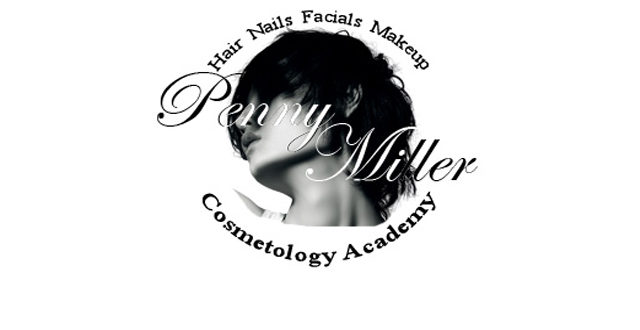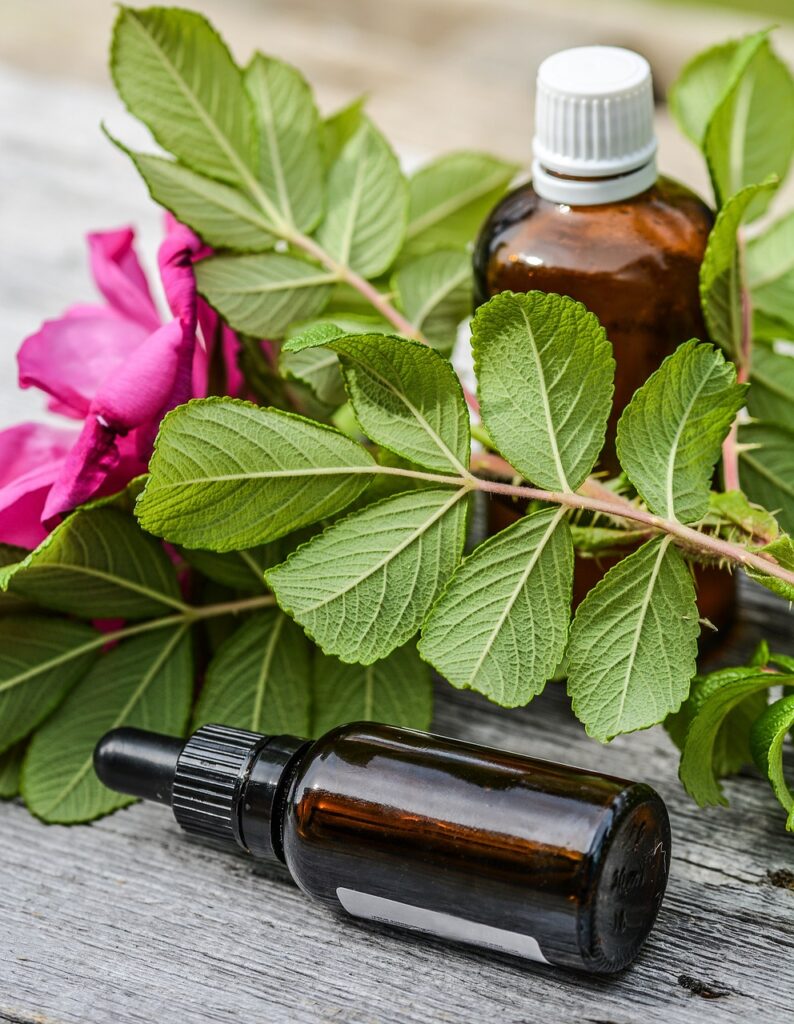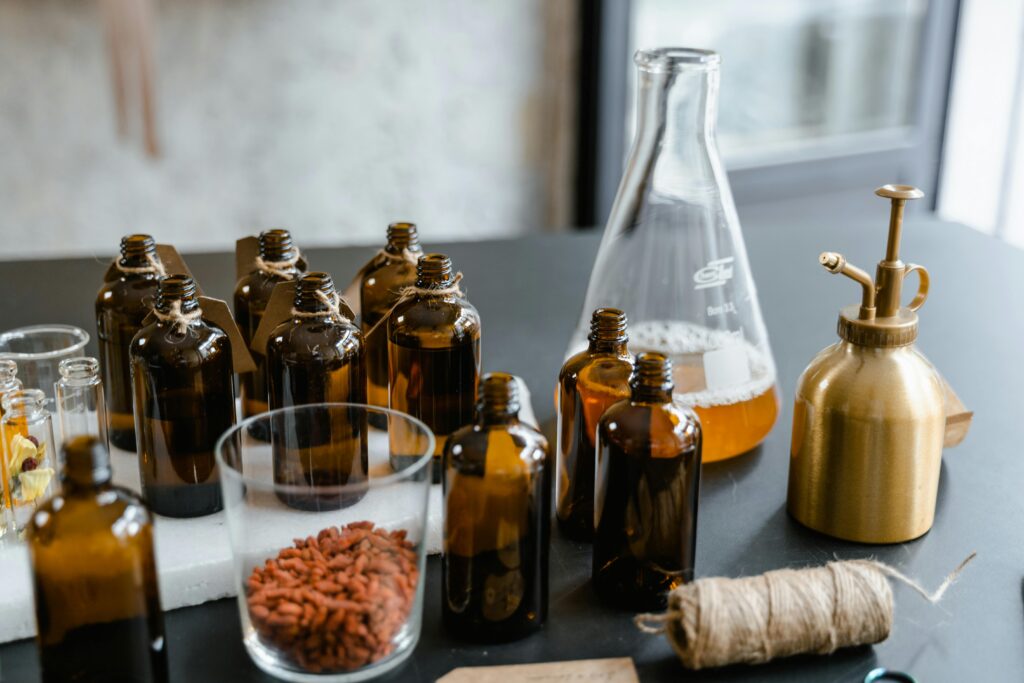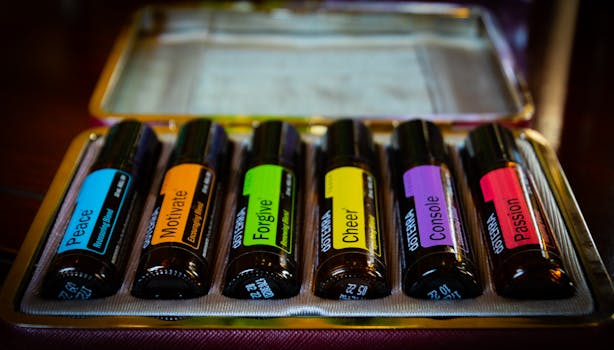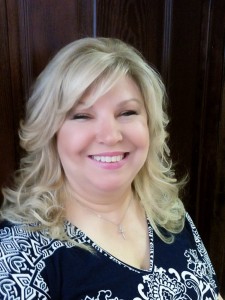What are Essential oils and how are they used?
Essential Oils
Essential oils, or aromatherapy oils, are the fragrant essence of a plant. These highly concentrated liquid oils are the foundation of aromatherapy, which is based on the idea that the aromatic oil from a plant has healing properties. Essential oils should not be confused with perfumes or other fragrance oils. Essential oils are natural to the plant, whereas fragrance oils are chemically produced to mimic certain aromatic scents for perfumes, colognes, candles, etc.
Essential oils are extracted one of two ways: either by steam distillation or expression, or pressing. Distillation is the most prominent method used to extract aromatherapy oils, however. This technique involves steaming the plant matter until it breaks down. The byproduct of this breakdown phase is the plant's fragrant oil, which is cooled, separated from the water and finally filtered into its pure essential oil. Some aromatherapy oils are too concentrated to apply directly to the skin. In this case, the oil is combined with a 'carrier' oil or lotion to dilute its strength. Applying stringent oils to the skin can cause harmful reactions, such as rashes or burns. And, certain essential oils should be avoided if you are pregnant or have been diagnosed with a specific illness.
When the essential oil is extracted via the expression method, it is actually pressed from the plant source the same way lemon juice is pressed from a lemon. There are various types of essential oils, including lavender, tea tree, patchouli, jasmine, rosemary, etc. Learn all about the most common essential oils here.
Aromatherapy Mood Blends
Aromatherapy is based on the principle that natural fragrances, or essential oils, from certain plants or flowers can affect our moods, and consequently how we think or feel at any given time.
In fact, practitioners of Aromatherapy base their entire belief system on the ideology that essential oils, or aromatherapy oils, have medicinal benefits including antidepressant and antibacterial properties, and plenty in between!
Certain essential oils can trigger physical or emotional effects on their own. For instance, lavender is a widely known calming agent, whereas peppermint is a mood lifter. Other oils are blended to achieve a desired physiological or psychological effect. Blending ylang ylang with grapefruit relieves stress.
The following are popular essential oils (and blends). Add a few drops into a diffuser, a pot of hot water, or simply to a cotton ball to achieve the desired effect.
*Do not apply drops directly to your skin; blend with carrier oils or lotions if you want to apply it that way. You can also create some wonderful room sprays by simply mixing a few drops of essential oil with a few ounces of distilled water.
Stress Relief
Bergamot, Chamomile, Lavender, Lemon, Orange, Patchouli, Vanilla, Ylang Ylang
Anxiety/Fear
Bergamot, Chamomile (Roman), Cedarwood, Frankincense, Jasmine, Lavender, Neroli, Patchouli, Rose, Sandalwood
Self Esteem
Bergamot, Cypress, Grapefruit, Jasmine, Orange, Rosemary
Sadness/Grief
Bergamot, Chamomile (Roman), Clary Sage, Frankincense, Grapefruit, Jasmine, Lavender, Lemon, Orange, Rose, Sandalwood, Ylang Ylang
Fatigue
Basil, Bergamot, Clary Sage, Frankincense, Ginger, Grapefruit, Jasmine, Lemon, Patchouli, Peppermint, Rosemary, Sandalwood
Agitation
Chamomile (Roman), Lavendar, Mandarin, Sandalwood
Isolation
Chamomile (Roman), Bergamot, Clary Sage, Frankincense, Rose
Memory Boosters
Basil, Cypress, Lemon, Peppermint, Rosemary
Aphrodisiac
Clary Sage, Jasmine, Patchouli, Rose, Sandalwood, Vanilla, Ylang Ylang
Safety With Aromatherapy Oils
CAUTION!!! Aromatherapy has many benefits, but it is imperative that safety precautions are taken when handling essential oils. While they may seem harmless (they are extracted from plants, after all), most need to be diluted before applying directly to the skin.
Safety Tips
- Read all label warnings and cautions.
- Keep essential oils away from your eyes. If an oil comes into contact with your eye, flush it out with large quantities of warm water and immediately seek medical advice.
- Keep essential oils away from children, who may think they can ingest them because of how they smell.
- Use only the suggested amount; misuse can lead to headaches and/or nausea. If you suspect you’ve used too much, drink plenty of water and get some air.
- Essential oils should be diluted before being applied to the body. Because they are so concentrated, it is not advisable to rub essential oils directly onto the skin. This can cause redness, burning, itching and irritation. If the oil comes into contact with your skin, coat the area in a cream or vegetable oil and then wash with warm, soapy water.·
- Never consume essential oils, unless called for in specific recipes. If you do ingest the oil, drink and rinse mouth out with milk, and seek medical advice.
- Read the warnings on essential oil packaging; some oils shouldn’t be combined with other medication or alcohol, or taken if you have certain medical conditions (like epilepsy or low blood pressure).
Essential oils have wonderful medicinal benefits, but if used improperly the effects can be hazardous to your health.
How can I tell the difference between a true essential oil and a "fragranced oil"?
Generally true essential oils are labeled as a pure essential oil and packaged in a dark, glass container. They should be labeled 100% pure essential oil and they should also list the species of the plant. Example 100% pure, lemongrass "Cymbopogon citratus" . Fragrance oils can be purchased in a variety of stores and are labeled several different was such as perfumed oil, fragrance oil, oil blend, infused oil etc. Beware of cheap synthetic oils, that are not natural as chemicals used to fragrance these oils can be dangerous to your health. When using true essential oils, they are very concentrated, and it takes very little to get the job done.
Where can you purchase Aromatherapy Oils?
The answer is almost anywhere, please check out your source, not all oils are the same, some can even be counterfeit, so it's important to purchase from a reputable person or business.
I personally purchase my oils from a pharmacy, or a Health Food Store. NOW ESSENTIAL OILS is an excellent source. Remember at a Pharmacy you can ask for more information if you have any questions or concerns about possible drug interactions.
If you like this post and would like to see more posts about this type of information, please like and share on your social media. We would love to hear from you and what you think about our information- Have a blessed day!
